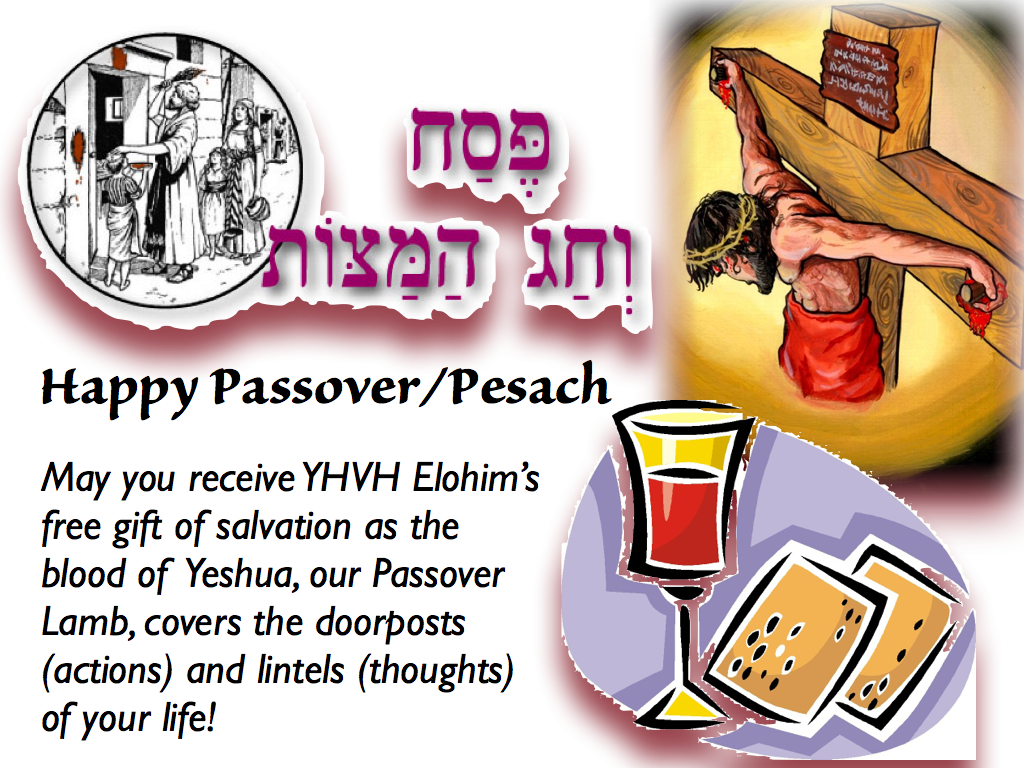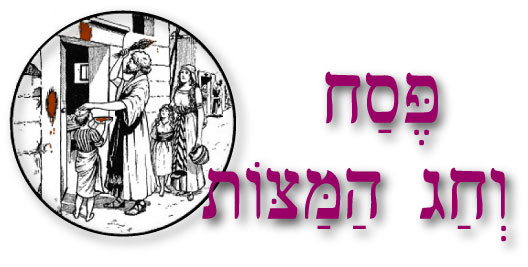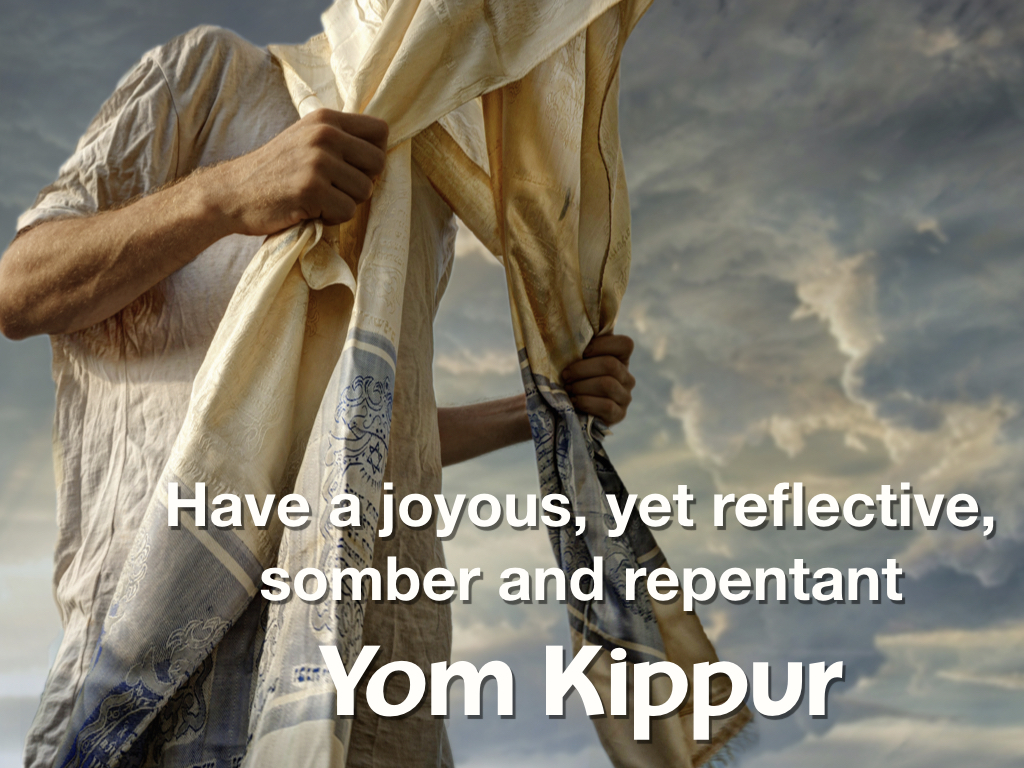
Isn’t your life already busy enough? Who has time for a six-hour Passover Seder commemorating something that happened thousands of years ago? What could this possibly have to do with my life here and now, you may ask? How can a 3500-year-old Biblical ritual in any way relate to those living in the age of the laser, satellites, the worldwide web, computers, genetic engineering, nanotechnology and artificial intelligence? Well, let’s find out!
The Preacher said in Ecclesiastes 3:15, “That which is has been already and that which will be has already been.…” Life is full of paradoxes. Do advancements in technology, science, economics, medicine, religion, and the spread of global government that all promise a man-made utopia of sorts really fulfill the promise to give man the rest for his weary soul and a deeper meaning to life that he longs for, as well as the answer to the age-old question: What happens when I die? Can I live forever? If so, how?
How about we take a different approach to the questions and problems facing modern man? Is it possible to go forward it time by going backwards in time? This is a thesis that Jeremiah, the ancient biblical prophet, proffered in his day, and which is still relevant to us. He declared, “Thus says YHVH, ‘Stand by the ways and see and ask for the ancient paths, where the good way is, and walk in it; and you will find rest for your souls. But they said, we will not walk in it,’” (Jer 6:16). What were those ancient paths to which this white-haired Israelite prophet referred? This question is answered three verses later: “Because they have not listened to My words, and as for My Torah, they have rejected it also,” (verse 19). YHVH through his prophets has been showing men the way of rest for their weary souls for thousands of years, yet men consistently refuse to listen. They always have a better way, or so it seems!
The festival of Passover is one of the most ancient paths to be found in the Scriptures. In the Passover celebration are clues that will help us to understand our past, present and the future.
Switching gears, a God-hater, Karl Marx, the father of modern communism, said that religion is the opiate of the masses. Yes, this can be said of dead, truthless and Spiritless religion. But how about that religion which gives definition, purpose, meaning, hope and destiny to a man’s life? How could anything that comes directly from the Loving Father who created you and me in his own image be detrimental to us?
Moreover, it has been said that the religion of the Bible tells a person where he has come from, where he is at and where he is going. Could it not be said that a man who knows the answers to these questions possesses true wisdom and wealth, and has indeed found rest for his troubled soul and possible, even, the answer to the life-after-death question?
Moving along as we attempt to find rest for our weary souls and answers to the deep questions of life, let’s now consider another aspect. One of the most important scriptures in the Jewish faith is the famous shema passage of Deuteronomy 6:4–9. This passage, which is like a “pledge of allegiance” for the Jews, starts out by saying, “Hear [shema], O Israel …” The word shema literally means “to hear and to do.” Later, in verse five, the shema continues, “And you shall love YHVH your Elohim with all your heart, and with all your soul and with all your might.” Loving our Heavenly Creator is not just a mind-thing, but also an action and a doing thing. It is something we act out and participate in. This is the Hebrew way…the ancient paths! As a path is for the purpose of walking down, even so, Passover is meant to be celebrated. This is how YHVH’s people showed their love and devotion to him. Yeshua, the Jewish Messiah, reiterated this when he said, “If you love me, keep my commandments [or Torah mitzvot]” (John 14:15). In so doing, one begins to discover rest for the weary soul and answers to life. The walk is the answer!
This is what the Passover Seder is all about. We, as humans, learn by doing. We learn obedience by obeying. We learn to love by loving. We learn about heavenly and spiritual mysteries by walking out the types and shadows found in Scripture (of which Passover is but one) that point to the heavenly and spiritual domain or dimension of YHVH himself. The French have a saying: L’appétit vient en mangeant. Translated this means: Appetite comes while eating. Or we could say that the more one eats (delicious food), the more one wants. David said in Psalm 34:8, “O taste and see that YHVH is good: blessed is the man that trusts in him.” The more we walk out the commandments of our Heavenly Father, the more of his goodness we behold, the more of his blessings we receive, the more our soul finds rest, the more we want to walk out his commandments, the more we behold his goodness, and so on goes this wonderful spiritual growth-cycle. Again, in the walk, we find rest and answers.
So why do we go to the trouble, expense and time to celebrate a Passover Seder? First, it helps us to fulfill the commands YHVH gave to us to do at Passover, such as eating lamb, unleavened bread and bitter herbs; telling our children the story of the Passover; holding a “set apart convocation” and so on (Exod 12:14–20, 43–49; Lev 23:4–5; Num 9:2–3; 28:16; Deut 16:1–3). But again we ask, what is the significance and relevance to us of this celebration? What can we gain from involving ourselves in this curious, ancient ritual? What mysteries has the Creator hidden therein that yield a treasure trove of answers to the deeper questions of life?
Passover is but the first piece of a panoramic puzzle, or the first thread in a rich tapestry of YHVH’s plan of redemption of mankind. Though the children of Israel kept the first Passover 3500 years ago in the land of Egypt, this ancient celebration is not only a memorial of what occurred then, but is of utmost significance to the spiritual life of the disciple of Yeshua today. It has future or prophetic implications as well. Passover is the first step of a spiritual journey that, if one continues in it faithfully to the end, will lead one into the very presence of YHVH Elohim, our Heavenly Father, himself. What a journey! Let’s take a closer look at it this step.
Ancient Israel, the covenant people through whom YHVH had chosen to reconcile all nations of the earth to himself, was in slavery in Egypt. YHVH heard their desperate cries, and remembering his promises to Abraham, with a mighty hand he brought down proud and powerful Egypt by his judgments and set his captive children free. Israel was in bondage to Egypt—a biblical metaphor for the world, the flesh and devil. And even as you and I were in bondage to our past sinful lives and under helpless control of the world, flesh and the devil. As the Israelites slew a perfect lamb and smeared its blood on the sides and top of the door posts of their homes, they were spared YHVH’s judgment on Egypt (again, a symbolic picture of unsaved sinners) and all those who were not under the blood. Likewise, there is deliverance for us if we simply recognize our state of sin and being spiritually lost, and if we but come repentantly to the cross of Golgotha upon which Yeshua, the bleeding Lamb of YHVH, slain from the foundation of the earth, hung. If we too will put our faith and trust in him and apply his sin-atoning blood to the door posts (thoughts and actions) of our lives, we, like our ancient forefathers, can escape YHVH’s terrifying judgment, for sin, the wages of which is death, will have no claim on our lives if we are under the blood of the Lamb.
Passover is but the first step in a parade of seven prophetic dress rehearsals or convocations (in Hebrew each is called a miqra or a command assembly) represented by the seven glorious festivals of YHVH (called moedim or appointed times) all of which point to the redemptive work of Messiah Yeshua in the life of the redeemed believer. There are three set-apart festivals (or moedim) in the spring of the year that are prophetic shadow-pictures of Messiah’s first coming to earth, and there are four set-apart festivals in autumn which are prophetic shadow-pictures of his second coming at the end of the age.
Passover represents the redeemed believer coming out of the spiritual Egypt of this world. Interestingly, Passover falls at the beginning of YHVH’s sacred biblical year. Not only is it at the beginning of the new year, but it is the first festival of the year and represents the first step in a new believer’s life—all falling in the spring season of the year, which is the time of rebirth and new beginnings both in the physical creation and in YHVH’s spiritual creation in the life of the individual!
Chag haMatzot (the Feast of Unleavened Bread), which immediately follows Passover and which is often considered to be a continuation of Passover, represents the believer putting Egypt out of his life, which is symbolized by putting leavening out of our homes and living in a leaven-free environment for seven days.
After that comes Shavuot (The Feast of Weeks or Pentecost). Since it is impossible for one to live sin-free for very long without help from above, man needs a guidebook on righteous living, and one needs divine enablement to follow the instructions within the guidebook. YHVH’s Torah (i.e., the first five books of the Bible) is that guidebook and was given to Ancient Israel at Mount Sinai. On the day of Pentecost in Acts 2, the first-century believers had not only been given Yeshua, the Living Torah (the Word of YHVH made flesh), but they were promised that the Ruach haKodesh (the Set-Apart or Holy Spirit) power of Yeshua, the Living Torah, would live inside of them empowering them to walk faithfully in the light and truth of YHVH’s Written Torah instructions in righteousness which are a river of life telling us how to love our Creator and our fellow man.
After the spring biblical festivals we come to the fall festivals, which speak of a great harvest of believers at the end of the age corresponding to the second coming of Yeshua. Those festivals are Yom Teruah (the Day of Blowing Trumpets or Shofars), Yom Kippur (the Day of Atonement), and Sukkot (the Feast of Tabernacles) immediately followed by Shemini Atzeret (the Eighth Day). Each of these contains a whole world of spiritual and prophetic meaning of tremendous significance to the believer pertaining to the regathering of Israel, the resurrection of the righteous dead, the return of Yeshua the Messiah, the marriage of Yeshua the Lamb of Elohim to his spiritual bride (the believing saints) and the establishment of YHVH’s millennial kingdom on earth. Learn about them. You will be blessed!
The central theme of the Passover Seder celebration was the lamb, along with the matzah (unleavened bread) and the bitter herbs. The Lamb is a picture of Messiah Yeshua who was crucified for you and me at the exact moment when each family of the children of Israel was killing its own lamb, and later on when the high priest was killing the Passover lamb up on the temple mount in Jerusalem.
In the Gospels we find recorded how Yeshua celebrated Passover or the Lord’s Supper memorial celebration with his talmidim (disciples). At that supper, he instructed them how he would perfectly fulfill the role of the Passover lamb and that they were to continue that memorial meal to which Paul makes reference in 1 Corinthians 11:17–34.
In the Seder are four cups of wine around which the Passover celebration revolves. They are called the Cup of Sanctification, the Cup of Deliverance, the Cup of Redemption, and the Cup of Praise or Completion. The four cups are based on Exodus 6:6–8, in which YHVH makes seven promises (called the Seven Steps of Redemption) to Israel where he elaborated how he would start by delivering Israel from Egypt and end up bringing them into the Promised Land that he would give them.
We believe that Messiah will drink of the Fourth Cup with his spiritual bride in his kingdom, for it is recorded in the Gospels that Yeshua drank of at least two of the four cups with his disciples during the Last Supper. But the last, or Fourth Cup of Praise or Completion, he said he would not partake of “until that day when I drink it new with you in my Father’s kingdom” (Matt 26:29). In this we see a reference to the long-awaited marriage supper of the Lamb to occur after his second coming.
And this, my beloved friends, is only the tip of the proverbial iceberg in the explanations of these wonderful events that Bible believers celebrate during the Passover Seder. It is a journey, if you stay faithful to him, that will never end, for the more you grow and learn, the more you will realize how little you know and how vast the ocean of YHVH Elohim’s unsearchableness really is!
Now all these things happened unto them for examples and they are written for our admonition, upon whom the ends of the world are come. (1 Cor 10:11)
But as it is written, Eye has not seen, nor ear heard, neither have entered into the heart of man, the things which Elohim has prepared for them that love him. But Elohim has revealed them unto us by his Spirit, for the Spirit searches all things, yes, the deep things of Elohim. (1 Cor 2:9–10)
Overview of Key Elements Pertaining to the Passover
Here are some important facts about the Passover.
Continue reading




